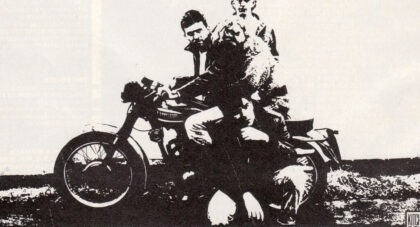Hailu Mergia wants you to know: He was always ready to return the spotlight. He was just waiting for someone to ask.
And now that they have -- now that a series of people have, actually -- the 71-year-old keyboardist’s return is ready to evolve from rediscovered curiosity to full-blown real-life comeback, highlighted by the release of Lala Belu, Mergia’s first album of new material in two decades.
To fully appreciate this stage of his career, though, you have to know Mergia’s story. It’s now relatively well-known: He spent the first half of his life in his native Ethiopia, playing keyboard in the Wailas Band, a popular Addis Ababa-based jazz and funk ensemble that, in 1981, became the first modern Ethiopian band to tour America. During that tour, Mergia and three of his band mates decided to remain stateside rather than return to Ethiopia, then wracked by famine and ruled by the Derg dictatorship. Mergia settled in the Washington D.C. area, started driving a taxi and stopped playing music professionally, choosing instead to cart around his keyboard in the trunk of his cab and practice when passengers were scarce.
That’s where Mergia’s musical story seemed to end, until a few years ago when he heard from Brian Shimkovitz, an American who carved himself a niche online by highlighting obscure African music on his website, Awesome Tapes from Africa. Shimkovitz had converted his hobby into a record label and wanted to reissue Mergia’s 1985 one-man-band classic Shemonmuanaye. Reissued as Hailu Mergia & His Classical Instrument: Shemonmuanaye, the album finds its namesake in exploratory mode, fusing accordion, Rhodes piano and modern synthesizers with traditional melodies of Ethiopia. The result is a set of songs that are warm and woozy, relaxed, low-key funky and strangely beautiful.
The release sparked wider interest in Mergia’s music, prompting the artist to start playing out again, most often with D.C. drummer Tony Buck and bassist Mike Majkowski. Awesome Tapes has since reissued two more archival releases: the 1977 Wailas Band album Tche Belew and Mergia’s 1978 collaboration with the Dahlak Band called Wede Harer Guzo.
Which brings us back to Lala Belu, a six-track album featuring three traditional Ethiopian songs, three Mergia originals and a jazzier, more upbeat sound than Shemonmuanaye, thanks largely to the rhythm section of Buck and Majkowski. But the album still sizzles with Mergia’s inspired, roaming sound. AD caught up with Mergia at his Fort Washington, Maryland home, where he spoke by phone about Lala Belu, driving a taxi and keeping his musical skills sharp.
Only the good shit. Aquarium Drunkard is powered by its patrons. Keep the servers humming and help us continue doing it by pledging your support.
To continue reading, become a member or log in.


